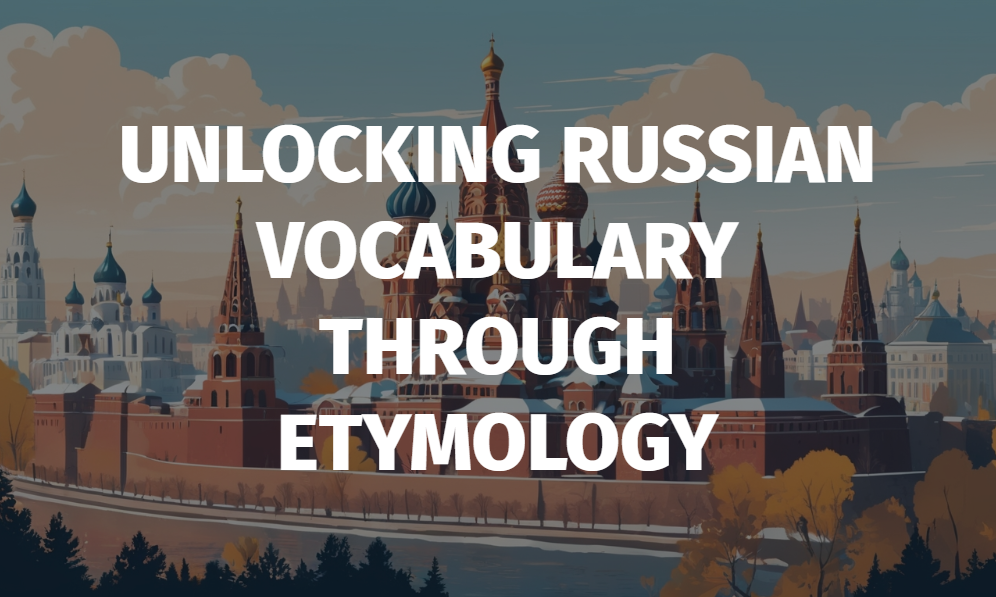
Unlocking Russian Vocabulary Through Etymology
Learning a new language can be a daunting task, especially when faced with an unfamiliar alphabet and seemingly alien words. However, for English speakers venturing into Russian, there’s a secret weapon that can make the journey much smoother: etymology. By understanding the origins and evolution of Russian words, learners can unlock patterns, make connections, and ultimately accelerate their vocabulary acquisition.
The Slavic Foundation
Russian, like English, is an Indo-European language. However, it belongs to the Slavic branch, along with languages like Polish, Czech, and Bulgarian. This Slavic core forms the foundation of Russian vocabulary and understanding it can provide valuable insights.
For example:
– мать [mat’] – mother
– брат [brat’] – brother
– вода [va-DA] – water
These words have clear cognates in other Slavic languages and even share roots with English words (mother, brother, water), showcasing the ancient connections between these languages.
Borrowed Words: A Bridge to Familiarity
Throughout its history, Russian has borrowed words from various languages, creating familiar touchpoints for learners:
1. From French:
– ресторан [rees-ta-RAN] – restaurant
– шофёр [sha-FYOR] – chauffeur
2. From German:
– шлагбаум [shlak-BA-um] – barrier (from Schlagbaum)
– рюкзак [ryuk-ZAK] – backpack (from Rucksack)
3. From English:
– компьютер [kam-P’YU-teer] – computer
– футбол [fut-BOL] – football
Recognizing these loanwords can provide instant vocabulary boosts and help learners feel more at home in the language.
Prefixes and Suffixes: The Building Blocks
Russian makes extensive use of prefixes and suffixes to modify word meanings. Understanding these can exponentially increase your vocabulary:
Prefixes:
- по- [po-]: often indicates the start of an action
– идти [eet-TEE] – to go → пойти [paî-TEE] – to start going - пере- [pee-ree-]: “over” or “re-“
– делать [DYE-lat’] – to do → переделать [pee-ree-DYE-lat’] – to redo
Suffixes:
- -тель [tyel’]: often indicates a person who does something
– учить [u-CHEET’] – to teach → учитель [u-CHEE-teel’] – teacher
By learning these affixes, you can often guess the meaning of new words or create words yourself.
Old Church Slavonic: The Elevated Register
Many words in Russian have their roots in Old Church Slavonic, the liturgical language of the Eastern Orthodox Church. These words often carry a more formal or elevated tone:
– голова [ga-la-VA] – head (neutral)
– глава [gla-VA] – head (formal, as in “head of state”)
Understanding this distinction can help learners navigate different registers of the language.
Conclusion
Etymology is a powerful tool for unlocking Russian vocabulary. By understanding the Slavic roots, recognizing loanwords, mastering affixes, and appreciating the influence of Old Church Slavonic, learners can approach Russian vocabulary not as a series of isolated words to memorize, but as an interconnected network of meaning. This approach not only aids in retention but also deepens one’s appreciation for the rich tapestry of the Russian language.
As you continue your Russian language journey, remember to look for these etymological connections. They will serve as your map through the fascinating landscape of Russian vocabulary, helping you unlock new words and concepts with greater ease and understanding.